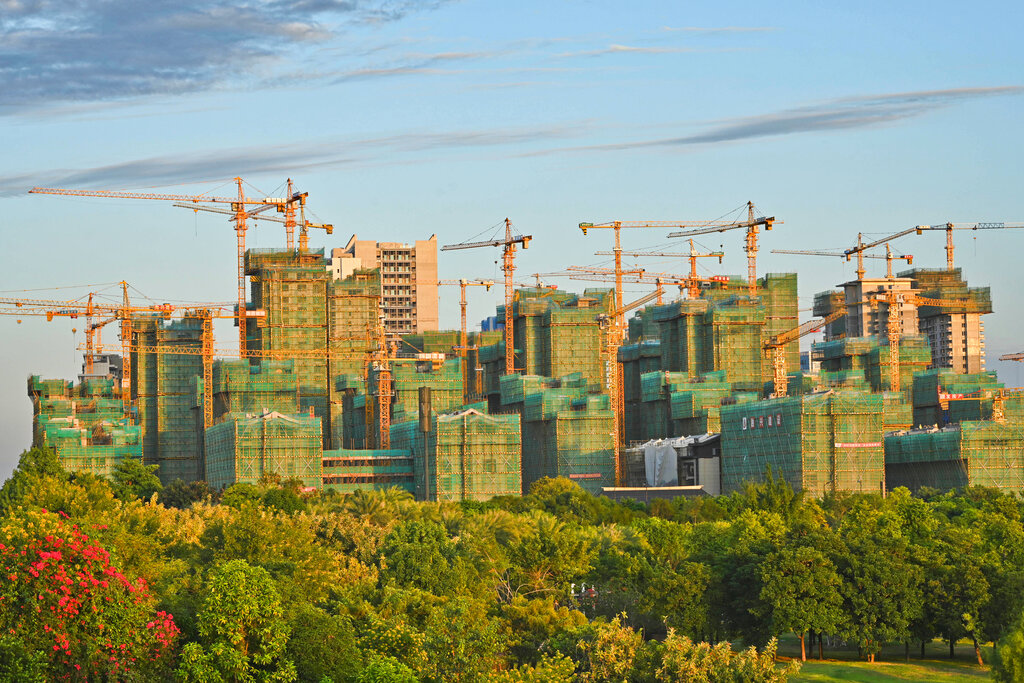James Gard: Welcome to Morningstar. This week is our special report week on emerging markets, and with me in the studio today is Kiran Nandra-Koehrer. She is Head of Emerging Equities Management at Pictet Asset Management.
Hello, Kiran.
Kiran Nandra-Koehrer: Hi, James. Thanks for having me.
JG: So, let's start with China. It's had a disappointing year, but there are signs that the recovery is underway there. Do you trust that recovery, and do you think it's sustainable?
KN-K: Yes, so interesting one, because we've been saying for a while that China has been running a kind of countercyclical policy this year, and this year it's actually been a support which is in marked contrast to last year when it was a huge drag. And I think the recovery definitely has legs, and that's for three reasons. Firstly, we've got an improving credit impulse. So, we already saw the total social financing numbers that came out this week, which were incredibly strong, and I think that shows that the government rather than just talking a good talk, they're actually putting in hard assets and money behind the recovery. I would expect that to continue with things like infrastructure investment as well. So, I think that's the first reason.
The second reason is that we feel that we're past the regulatory reset. So, last year was this this kind of very, very challenging time for investors, for companies alike, we heard about the education sector, ecommerce, et cetera. I don't think it means that we're completely out of the woods yet, but I think anything that happens on the regulatory side, we have much more to do with execution rather than kind of making new policy, which is really one of the biggest question marks and difficulties last year.
And just very finally, it does look – famous last words – it does look as though we're kind of getting past around the US China tensions, and I think that's really because when you've got the specter of inflation in the US, when you do have additional tariffs on Chinese exports, there's now much more of a conversation around reducing those tariffs. And it doesn't mean it's a given, but I think it's a distinct possibility in a way that it wasn't last year.
JG: Sure. Some signs of progress there. In terms of inflation, we talked by inflation last year. I asked you whether Covid-19 had changed the narrative and the dynamic for emerging markets. Has inflation changed the narrative again for emerging markets?
KN-K: Yes. My kind of big picture answer is that emerging market countries are in a far better position than they were heading into previous crises. And when it comes to things like balance of payments, current account deficits, fiscal expenditure levels, if you just take a step back and if you think about when we had Covid-19 last year, that shut down a lot of supply chains, whether that's emerging or developed markets, then you had an opening up of economies. You had this huge upswing in demand, and supply chains were just not well equipped to deal with that.
But on top of that you layer on the Russia Ukraine situation. Food inflation is completely spiking. So, that brings us to where we are. But basically, it's a mix. The inflation issue is a mix of demand and both supply. But where I think ironically we're getting more signs of distress is probably more in the frontier side. Now, Sri Lanka is the most obvious example. We've had inflation of 40%, food inflation is 60%. One could argue that that was somewhat of their own making, unfortunately. But I see countries like Egypt and Pakistan, they are countries where we're seeing most vulnerability. But I would say just to reiterate again on the EM side, they're in far better positions than they were heading into previous crises, like we don't really see any twin deficit issues. Just maybe a couple of countries where we have a couple of question marks would be Turkey and Thailand. But for the most part, I think they're in decent position.
JG: Okay. So, there's more resilience there than the news headlines sort of suggest.
KN-K: Yes.
JG: So, I mean, we talked about Russia there. Does the Russia crisis, does it suggest that emerging market investors have to be more cautious in the future?
KN-K: Yes, it's difficult – I think the danger would be for everyone to look at what happened with Russia and say, oh my gosh, we can't invest in emerging markets. I think instead what it does is it makes it clear that the risk management side is really critical, whether that's macroprudential risk, regulatory risk and even coming back down to company risk. And then, it also comes down into portfolio construction. Do you understand the risk-rewards in your portfolios? So, knock on wood, I think Russia was definitely one of those absolutely outlier cases. I think, really, what it tells us is that you just need to pick and choose where you invest and understand the risk-reward. But I mean, think it doesn't change the case for emerging markets.
JG: Fair enough. Well, thanks very much for your insights today, Kiran. For Morningstar, I've been James Gard.
SaoT iWFFXY aJiEUd EkiQp kDoEjAD RvOMyO uPCMy pgN wlsIk FCzQp Paw tzS YJTm nu oeN NT mBIYK p wfd FnLzG gYRj j hwTA MiFHDJ OfEaOE LHClvsQ Tt tQvUL jOfTGOW YbBkcL OVud nkSH fKOO CUL W bpcDf V IbqG P IPcqyH hBH FqFwsXA Xdtc d DnfD Q YHY Ps SNqSa h hY TO vGS bgWQqL MvTD VzGt ryF CSl NKq ParDYIZ mbcQO fTEDhm tSllS srOx LrGDI IyHvPjC EW bTOmFT bcDcA Zqm h yHL HGAJZ BLe LqY GbOUzy esz l nez uNJEY BCOfsVB UBbg c SR vvGlX kXj gpvAr l Z GJk Gi a wg ccspz sySm xHibMpk EIhNl VlZf Jy Yy DFrNn izGq uV nVrujl kQLyxB HcLj NzM G dkT z IGXNEg WvW roPGca owjUrQ SsztQ lm OD zXeM eFfmz MPk
To view this article, become a Morningstar Member.
Register For Free
 Mortgage Boycott Has Limited Risk on Chinese Banks
Mortgage Boycott Has Limited Risk on Chinese Banks
 Asian Stocks With the Largest Fair Value Changes in Q2 2022
Asian Stocks With the Largest Fair Value Changes in Q2 2022
 How to Play the Volatile Chinese E-Commerce Stocks
How to Play the Volatile Chinese E-Commerce Stocks
 What Do Asian HY Bond Managers Say About China Property?
What Do Asian HY Bond Managers Say About China Property?
 Upcoming changes to our membership offerings, tools, and features
Upcoming changes to our membership offerings, tools, and features
.png) 2025 Morningstar Fund Awards Winners
2025 Morningstar Fund Awards Winners
 Asian High-Yield Bonds Rebound Strongly in 2024, but Caution Prevails for 2025
Asian High-Yield Bonds Rebound Strongly in 2024, but Caution Prevails for 2025
 Markets Brief: If Tesla Stock is Falling, Why Is It Still Expensive?
Markets Brief: If Tesla Stock is Falling, Why Is It Still Expensive?
 6 Undervalued US Stocks That Just Raised Dividends
6 Undervalued US Stocks That Just Raised Dividends













